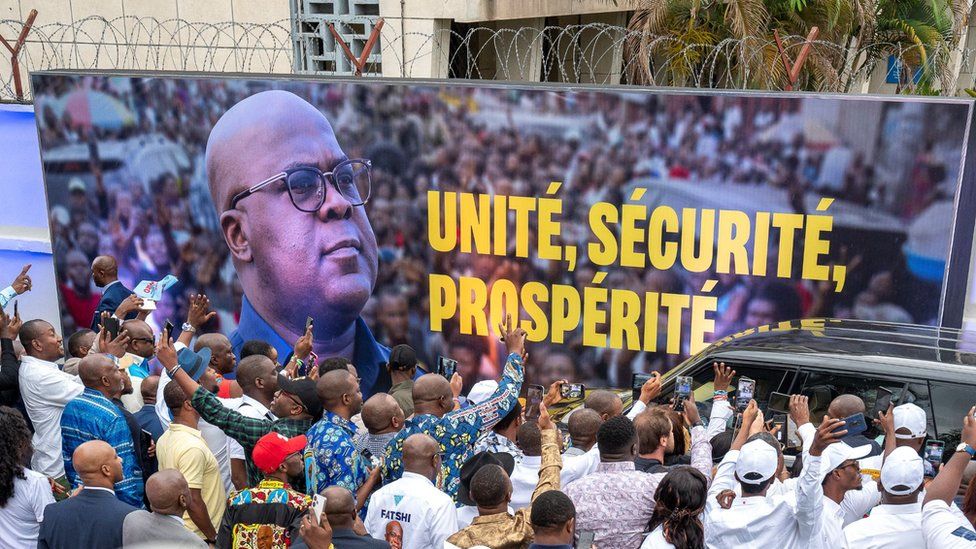-

-
-
Loading

Loading

Felix Tshisekedi is taking his oath for a second term as president of the Democratic Republic of Congo (DRC), but the road ahead is filled with challenges. With over 70% of the country's population living in extreme poverty and years of conflict devastating millions of lives, Tshisekedi has a difficult task ahead of him. The key question is whether he can bring peace to the DRC or if his campaign promises to go to war with neighboring Rwanda have ruined any chance of that. During both of his presidential campaigns, Tshisekedi promised to address the unrest in eastern DRC, where numerous armed groups, including the notorious M23, fight for control of land and valuable minerals like gold, diamonds, and cobalt. Last year alone, conflict between these groups forced a record 6.9 million people to flee their homes, according to the UN. To put an end to the violence, Tshisekedi needs to shift his focus from short-term military initiatives to long-term solutions. Experts argue that he should prioritize reforming the security sector and invest less trust in unreliable quick fixes. However, peace talks and negotiations, such as the Nairobi and Luanda processes, aimed at addressing the DRC's insecurity through military and political strategies, have stalled. In his first term, Tshisekedi attempted to restore order by declaring a state of siege in certain provinces and appointing military leaders to replace civil administration. He also launched recruitment drives for the army and initiated disarmament programs for former members of armed groups. However, critics argue that these initiatives have not succeeded in reducing fighting in the east, even though Tshisekedi claims otherwise. Tshisekedi announced plans to replace the East African force, which has been ineffective in curbing the DRC's conflict, with a southern African one. Whether this will help reduce insecurity remains to be seen. Additionally, Tshisekedi has threatened to go to war with Rwanda, accusing them of supporting the M23 rebel group. Rwanda denies these allegations and accuses the DRC of backing attacks by Hutu rebels. It is unclear whether Tshisekedi's threats against Rwanda will lead to actual military action, but Rwandan President Paul Kagame has warned that anyone who wishes for his country's destruction will face forceful retaliation. Tshisekedi's bellicose rhetoric may have drawn more violence to the DRC, as Rwanda's army is highly respected, while the DRC's is infamous for corruption and ill-discipline. Furthermore, Tshisekedi must address the political disputes caused by the disputed elections and facilitate dialogue among the DRC's diverse ethnic groups, something previous leaders have struggled with. Ahead of his inauguration, three opposition leaders and presidential candidates who lost to Tshisekedi called for protests during the ceremony. In conclusion, Tshisekedi's second term as president of the DRC presents immense challenges. He must tackle extreme poverty, bring peace to the conflict-ridden eastern regions, and resolve political and ethnic disputes. However, his threats against Rwanda and his reliance on military solutions may hinder his ability to achieve these goals. Only time will tell if Tshisekedi can bring long-awaited peace to the DRC.